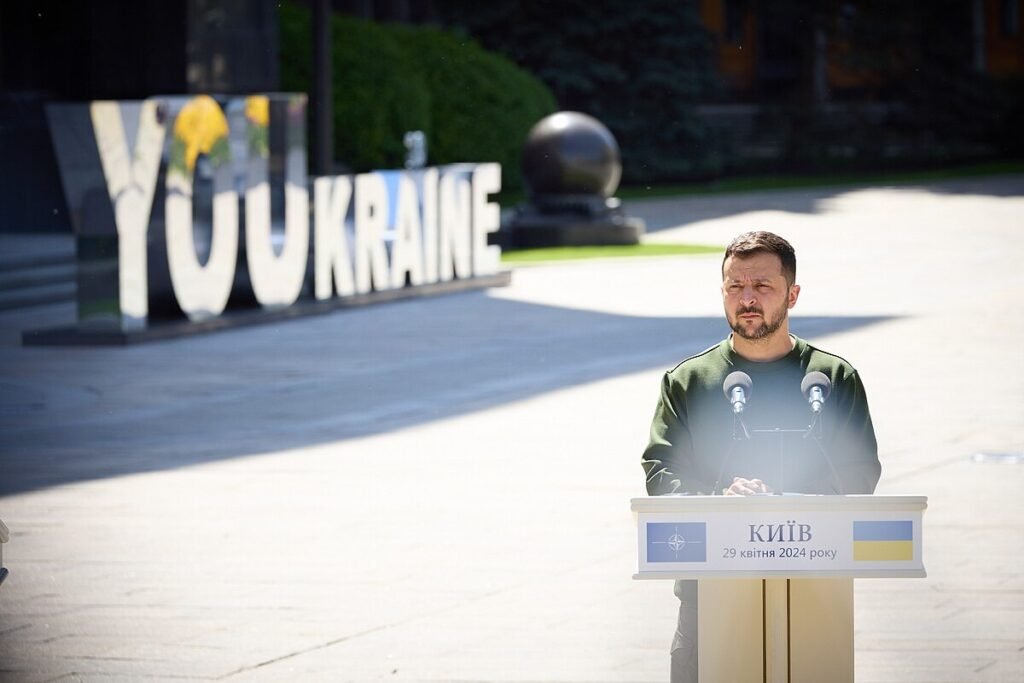A Historic Commitment at the NATO Summit
In a historic move, NATO member states convened in Washington, DC, have pledged a monumental $43 billion aid package to support Ukraine’s defense against ongoing Russian aggression. This unprecedented commitment signifies a major escalation in NATO’s support for Ukraine as it strives to maintain its sovereignty amid relentless conflict.
Details of the Aid Package
Military Equipment and Support
The comprehensive aid package includes a wide array of military equipment and support aimed at significantly enhancing Ukraine’s defensive capabilities. Key components of the package are Patriot missiles and F-16 fighter jets, both of which are crucial in countering Russian military operations in Eastern Ukraine. These advanced defense systems are expected to play a pivotal role in fortifying Ukraine’s military strength.
Strengthening International Solidarity
Ukrainian President Volodymyr Zelenskyy has warmly welcomed NATO’s pledge, underscoring the critical importance of international solidarity in the face of Russian aggression. He expressed profound gratitude for the support, asserting that this substantial aid will not only strengthen Ukraine’s position on the battlefield but also enhance its leverage in diplomatic negotiations.

Implications for Regional Security
Concrete Steps Toward Security
NATO’s commitment is far from symbolic. It represents a concrete step towards bolstering regional security in Eastern Europe. The aid package is anticipated to have a significant impact on Ukraine’s defensive capabilities, potentially altering the balance of power in the ongoing conflict. This infusion of advanced military resources could serve as a decisive factor in Ukraine’s efforts to repel Russian advances.
Logistical and Strategic Challenges
However, the implementation of such a substantial aid package is fraught with logistical and strategic challenges. Coordinating the delivery and deployment of advanced military equipment amidst ongoing military operations requires meticulous planning and execution. Moreover, integrating these new systems into Ukraine’s existing military infrastructure will necessitate extensive training and support.
For the first time, I held a meeting in a five-party format with the leaders of NATO’s Indo-Pacific partner countries.
— Volodymyr Zelenskyy / Володимир Зеленський (@ZelenskyyUa) July 11, 2024
We discussed the rapidly changing situation in the Indo-Pacific region, emphasizing the need for unity and coherence in security matters.
I stressed that, in… pic.twitter.com/HtiRA9MtM9
Geopolitical Implications
Path Towards NATO Membership
The aid package also raises critical questions about Ukraine’s future path towards NATO membership. While the support from NATO is a significant step, it remains to be seen how this will influence Ukraine’s accession process. The broader geopolitical implications of NATO’s expanded role in the region are profound, potentially reshaping alliances and strategic priorities in Eastern Europe.
Broader Regional Impact
NATO’s enhanced commitment to Ukraine is likely to have far-reaching effects on regional dynamics. It signals a stronger Western resolve to counter Russian influence and aggression, which could lead to heightened tensions and further strategic recalibrations among key players in the region.
Conclusion
NATO’s $43 billion aid package to Ukraine represents a landmark commitment to regional security and the defense of Ukraine’s sovereignty. This significant support promises to bolster Ukraine’s defenses against Russian aggression, potentially shifting the balance of power in the ongoing conflict. However, the successful implementation of this aid and the broader geopolitical implications will be critical in shaping the future landscape of Eastern Europe.








